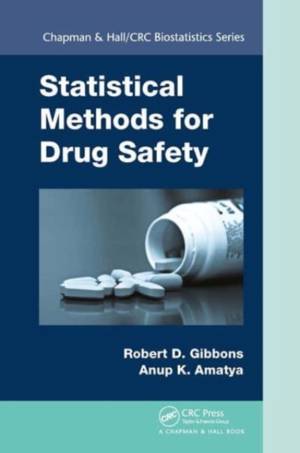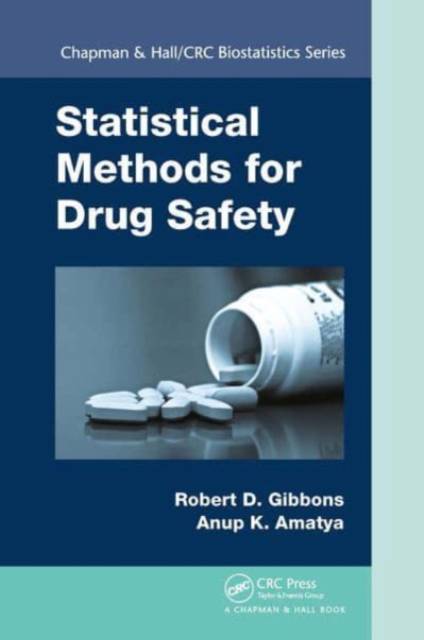
- Afhalen na 1 uur in een winkel met voorraad
- Gratis thuislevering in België vanaf € 30
- Ruim aanbod met 7 miljoen producten
- Afhalen na 1 uur in een winkel met voorraad
- Gratis thuislevering in België vanaf € 30
- Ruim aanbod met 7 miljoen producten
Omschrijving
Explore Important Tools for High-Quality Work in Pharmaceutical Safety
Statistical Methods for Drug Safety presents a wide variety of statistical approaches for analyzing pharmacoepidemiologic data. It covers both commonly used techniques, such as proportional reporting ratios for the analysis of spontaneous adverse event reports, and newer approaches, such as the use of marginal structural models for controlling dynamic selection bias in the analysis of large-scale longitudinal observational data.
Choose the Right Statistical Approach for Analyzing Your Drug Safety Data
The book describes linear and non-linear mixed-effects models, discrete-time survival models, and new approaches to the meta-analysis of rare binary adverse events. It explores research involving the re-analysis of complete longitudinal patient records from randomized clinical trials. The book discusses causal inference models, including propensity score matching, marginal structural models, and differential effects, as well as mixed-effects Poisson regression models for analyzing ecological data, such as county-level adverse event rates. The authors also cover numerous other methods useful for the analysis of within-subject and between-subject variation in adverse events abstracted from large-scale medical claims databases, electronic health records, and additional observational data streams.
Advance Statistical Practice in Pharmacoepidemiology
Authored by two professors at the forefront of developing new statistical methodologies to address pharmacoepidemiologic problems, this book provides a cohesive compendium of statistical methods that pharmacoepidemiologists can readily use in their work. It also encourages statistical scientists to develop new methods that go beyond the foundation covered in the text.
Specificaties
Betrokkenen
- Auteur(s):
- Uitgeverij:
Inhoud
- Aantal bladzijden:
- 308
- Taal:
- Engels
- Reeks:
Eigenschappen
- Productcode (EAN):
- 9781032477299
- Verschijningsdatum:
- 21/01/2023
- Uitvoering:
- Paperback
- Formaat:
- Trade paperback (VS)
- Afmetingen:
- 156 mm x 233 mm
- Gewicht:
- 339 g

Alleen bij Standaard Boekhandel
Beoordelingen
We publiceren alleen reviews die voldoen aan de voorwaarden voor reviews. Bekijk onze voorwaarden voor reviews.











